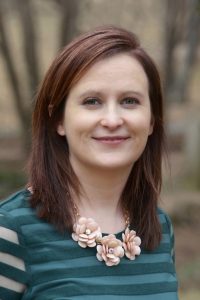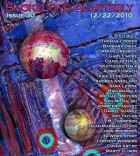You capture so perfectly a childhood moment here–one that is haunting to the narrator and to the reader. What is your scariest childhood memory?
I had a lot of the standard kid fears, I think. Nighttime fears. What’s hiding under the bed? Or what’s waiting in the closet? Or just outside the window? Some nights my worries were more mature; I often went to sleep worried about nuclear bombs — signs of those times, I guess. One Fourth of July down at the beach, I nearly drowned in a riptide. That ranks high — and more real too. But the memory that first popped into my mind at this question was of my mother sitting down at the kitchen table and telling me that if she and Dad broke up, it wouldn’t be because of me and it wouldn’t mean that they loved me any less. Resonant a little with the story here, my mother swears that this conversation never happened. And, in fact, there is no evidence that my parents ever considered separating, much less divorcing. They’re still happily married today.
The end of the story seems a bit magical, otherworldly. Do you think this what the narrator thought happened at the moment it happened, or does he remember the moment differently now that he’s reflecting on it, based on what happened to his brother? (A kind of coping mechanism, maybe.)
I believe that events fell out just as the narrator remembered it. While I think the tendency might be for readers to psychoanalyze him a little, I’m hesitant to do so myself. He believes that recliner lifted and flew, I believe it. (It’s worth noting, perhaps, that the original versions of this story relied purely on the magical; the idea of an embolism was a last-minute addition before I began sending it out. The explanation was an after-thought; the original draft left everything unexplained, unsettled.)
You’ve had success writing mystery stories for Ellery Queen Mystery Magazine and other publications, and you review a lot of mystery/crime novels for The Washington Post. What draws you to these types of stories?
Even as a young reader, my first love was mysteries. I was a big fan of The Three Investigators and of Nancy Drew (though not of the Hardy Boys, for various reasons), and even as my reading matured, I still found my greatest joy in crime novels, spy thrillers and the like: John D. MacDonald, Ken Follett, Jack Higgins. Later and for many years — too many — I felt myself influenced by that seeming division between “literary” and “genre” — thinking that I needed to aim higher in both my reading and my writing. But increasingly that division seems false, when so many of today’s “literary” writers who are drawing on the elements of genre fiction (look at Michael Chabon’s The Yiddish Policeman’s Union, for example, or China Mieville’s The City & the City) and so many of today’s “mystery” writers can be ranked amongst the finest fiction being produced: Tana French’s In the Woods; Laura Lippman’s What the Dead Know; Dennis Lehane’s Mystic River… the list could go on. That bypasses the question. I like stories that can exist both as page-turners — escapist fare on the surface — and as explorations of the human spirit at its most raw and essential, stories that explore people in crisis — in the midst of moments that bare their true selves for others or that force them to see themselves in the starkest terms. The best of today’s crime fiction does just that.
Your other published stories are often longer in length. How easily did “Up, Up and Away” come to you? Can you talk a little about the differences you’ve found writing flash versus writing more traditional length short stories?
I write long — no doubt about it. Even when I think I have a nice little idea in mind, I end up adding, fleshing out, developing, embellishing, building more connections as I pursue that idea. Suddenly, what I’m writing grows to 5,000 words, or 7,000 or 9,000… or often pushes the 10,000-word mark. This one, however, seemed almost fully formed in my mind before I ever put pen to paper. I don’t think of myself as a very lyrical writer — meaning that I don’t often think that my stories can rely on the language itself, the exquisite turn-of-phrase that illuminates a character or a moment, but rather in the slow accumulation of actions and ideas.
What other projects are you working on now?
I’ve been working on a few short stories more firmly in the crime/suspense category — some completed and submitted, others in process. I’m also working on a novel — tentatively titled “The Dead Girl” — that has been drafted but is in need of some serious revision. Stay tuned for that one.




 The core workshop of SmokeLong Fitness is all in writing, so you can take part from anywhere at anytime. We are excited about creating a supportive, consistent and structured environment for flash writers to work on their craft in a community. We are thrilled and proud to say that our workshop participants have won, placed, or been listed in every major flash competition. Community works.
The core workshop of SmokeLong Fitness is all in writing, so you can take part from anywhere at anytime. We are excited about creating a supportive, consistent and structured environment for flash writers to work on their craft in a community. We are thrilled and proud to say that our workshop participants have won, placed, or been listed in every major flash competition. Community works.